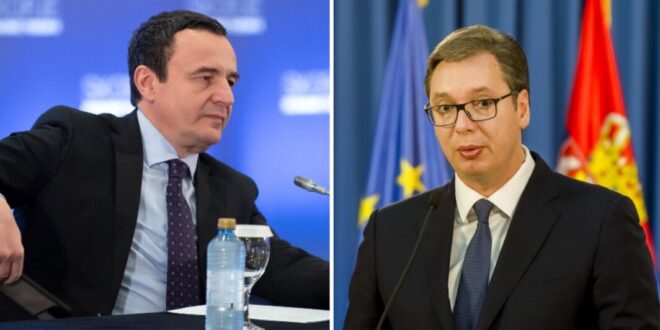Negotiations on the Kosovo issue have been going on for years, and since he came to power, they have been led by President Aleksandar Vučić.
On the other hand, Prime Minister Aljbin Kurti is negotiating on behalf of Kosovo.
This raises the question of why the dialogue between Belgrade and Pristina is not carried out by Kosovo Prime Minister Aljbin Kurti and Serbian Prime Minister Ana Brnabić.
Or why President Aleksandar Vučić and President Vjosa Osmani are not negotiating.
Also, the question arises, does the President of Serbia violate the Constitution, or do the negotiations fall under his authority?
“The President of the State violates the Constitution because he deals with tasks not assigned to him by it.” Namely, in Serbia, the division of power is disturbed, so in this regard, the president of the state, beyond his authority, takes it upon himself to do various important tasks that belong to the Government, the Parliament or other institutions. Also, with his statements, he interferes with the work of the independent judiciary, influences proceedings, but also ignores regulatory bodies (like, for example, REM),” lawyer Boško Ristić tells Danas.
As he explains, the dialogue concerning Kosovo should not be led by Vučić himself, because it is not in accordance with the division of powers.
“Negotiations regarding Kosovo, which are very important for our country, are very non-transparent. We do not know what Vučić is talking about, what he decides on and what decisions he makes. In any case, the Prime Minister and the Minister of Foreign Affairs need to be involved, because that is what the Constitution dictates when it comes to the division of power. “His position does not have the capacity for this kind of representation, unless he receives official authorization from the Parliament and the Government,” warns the lawyer.
Lawyer Branislav Tapušković agrees with him, suggesting that big topics, such as the Kosovo issue, cannot be resolved by the decisions of two people.
“Negotiations of this kind should never be left to two people. Such issues are resolved institutionally and it is incomprehensible that anyone decides on them independently. First of all, it is necessary to ask about it the institution of the Government, and then the Parliament. That everything is decided individually – whether it is the president of the country or the prime minister – is not in accordance with the Constitution,” says Tapušković.
However, Vesna Petrović, a retired professor at Union University Law School, says that the president himself decided that he would be the one leading the negotiations, and that, after so much time, it probably wouldn’t even be practical for someone else to take on that role.
“The President of Serbia most often violates the Constitution by going beyond the limits of his constitutional powers. Vučić is negotiating on Kosovo because he decided that way. Now nobody can interfere, since the negotiations last so long that only he (or some people close to him) know everything about what was negotiated and what was reached, as a final or temporary agreement/solution. I don’t believe that it would be functional for someone else to take over this task now, after 10 years of negotiations,” said Professor Petrović.
She adds that the president of Serbia does many other things on a daily basis that are not within his competence, as well as that no one has “sat down” to put together a team that will lead the negotiations.
In the end, Petrović says that it is logical that the mission of negotiations be entrusted to the Prime Minister, because foreign policy is something that is within her jurisdiction and according to the Constitution, but that it would be “strange” if that role was further handed over to Prime Minister Ana Brnabić.
 Eurasia Press & News
Eurasia Press & News



